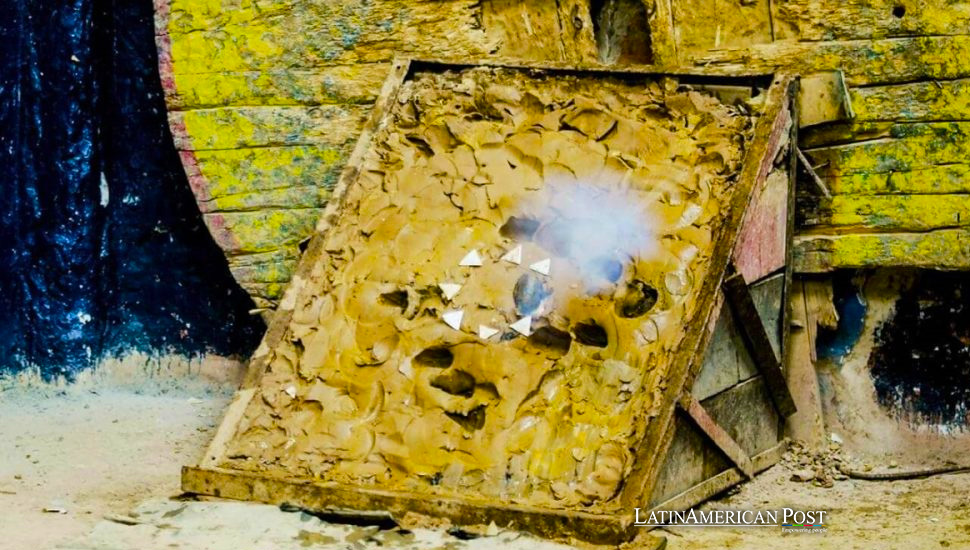From Pok-Ta-Pok to Tejo: Preserving Latin America’s Rich Heritage Through Traditional Sports and Games

Latin America’s traditional sports and games, from the ancient Mayan ball game Pok-Ta-Pok to Colombia’s explosive Tejo, are not merely pastimes but vital elements of cultural identity and heritage. These activities offer a window into the region’s past, reflecting indigenous and colonial societies’ values, beliefs, and social structures. Today, they stand as a testament to resilience and continuity, bridging generations and fostering community bonds in the face of modernization and globalization.
Latin America, a region celebrated for its vibrant cultures, diverse landscapes, and rich history, is also home to a unique array of traditional sports and games. These activities, ranging from the ancient Mayan ball game Pok-Ta-Pok to the gunpowder-fueled excitement of Tejo in Colombia, are much more than mere recreational pastimes. They embody the essence of the region’s cultural heritage, offering insights into the societal values, religious beliefs, and communal practices of Latin America’s indigenous and colonial past. As modern societies evolve, these traditional sports and games stand as powerful symbols of identity, continuity, and resistance against the homogenizing forces of globalization.
Pok-Ta-Pok: The Mayan Legacy
In the heart of the Yucatan Peninsula, the echoes of the ancient Mayan civilization resonate through the revival of Pok-Ta-Pok. This ball game, which dates back over a thousand years, was more than a sport to the Maya; it was a ritual that symbolized the cosmic struggle between life and death, day and night, with ball courts serving as gateways to the underworld. Adorned in elaborate regalia, players would use their hips to propel a heavy rubber ball through stone rings, which required immense skill and physical strength. Today, Pok-Ta-Pok has been revived in parts of Mexico, Belize, Guatemala, and Honduras as a competitive sport and a living connection to the Mayan heritage, celebrated in festivals and cultural events that draw both locals and tourists.
Tejo: Colombia’s National Sport
The explosive Tejo game in Colombia lights up the local campus every weekend. This traditional sport thought to have originated with the indigenous peoples of the region, involves throwing a metal puck (Tejo) across an alley at a clay board embedded with small packets of gunpowder (mechas). The objective is to strike the mechas, causing a loud bang and earning points. Beyond its thrilling gameplay, Tejo is a cultural fixture that fosters social cohesion, bringing together families and communities in camaraderie and festivity. Its recognition as Colombia’s national sport underscores the importance of Tejo as an integral part of the country’s cultural fabric.
Patintero: A Filipino Game with Latin Roots
Patintero, known in various Latin American countries under different names, is a testament to the cultural exchanges that have shaped the region. This game, which involves teams trying to cross lines defended by their opponents without being tagged, reflects the blend of indigenous and Spanish influences characteristic of Latin America’s diverse cultural landscape. Played in streets and playgrounds, Patintero serves as a bridge across generations, a reminder of the simplicity and joy of community-based entertainment.
Charrería: Mexico’s Equestrian Tradition
Charrería, often called Mexican rodeo, is a sport that encapsulates the spirit of Mexico’s ranchero culture. Originating from the skills required in livestock ranching, Charrería has evolved into a competitive sport and an art form, featuring a series of equestrian events that test the charros’ skill, agility, and courage (cowboys). Adorned in traditional attire, charros, and escaramuzas (female riders) perform intricate maneuvers and daring stunts, celebrating Mexico’s rural heritage and the deep bond between horse and rider. Recognized as an intangible cultural heritage by UNESCO, Charrería is a vibrant expression of Mexican identity and pride.
The Significance in Contemporary Culture
The enduring popularity of these traditional sports and games in Latin America speaks to their significance beyond mere entertainment. They serve as living museums, preserving ancient traditions and knowledge in a rapidly changing world. By participating in these activities, communities affirm their identity, pay homage to their ancestors, and foster a sense of belonging and continuity. Moreover, they offer an alternative to the globalized sports culture, promoting inclusivity, respect for nature, and communal participation.
Also read: Colombia’s Sports Minister Resigns Amid Panamerican Games Controversy and Regional Echoes
As Latin America faces the challenges of modernization and globalization, preserving and promoting traditional sports and games are more important than ever. They represent a rich cultural legacy that contributes to the diversity and richness of the global cultural mosaic. Through festivals, educational programs, and international competitions, Latin America can continue celebrating and sharing its unique sporting heritage, ensuring that these ancient games endure for generations.




